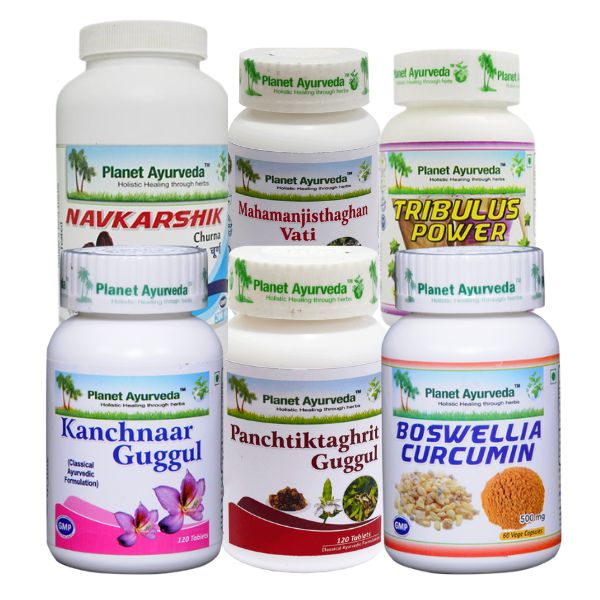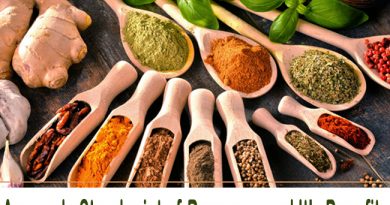Autoimmune Polyglandular Syndrome Type 2- APS / Schmidt’s syndrome
Introduction
Autoimmune polyglandular syndrome (APS) is a clustering of two or more endocrine disorders in a single patient. Common APS are PAS-1, PAS-2 and X-linked immune dysregulation polyendocrinopathy and enteropathy. PAS-2 is an autoimmune disease with polygenic inheritance. It lasts for 20-40 yrs. Age group and common in women. It leads to lymphocytic infiltration causing organ-specific damage. APS II is characterized by Addison’s disease associated with autoimmune thyroid diseases (ATDs) (Schmidt’s syndrome) and/or type I diabetes mellitus (DM). APS II is commonly associated with additional autoimmune diseases, such as celiac disease, pernicious anemia,chronic hepatitis, hypergonadotropic hypogonadism and vitiligo [1].

Diagnosis
It is diagnosed when primary adrenal insufficiency (Addison disease), autoimmune thyroid disease-causing Grave’s disease or hypothyroidism and type 1 diabetes mellitus is present.
Symptoms
Weight loss, fatigue, nausea, vomiting, generalized weakness, anorexia, abdominal pain, diarrhea, polyuria and polydipsia.
Treatment/Management
There is no to less particular treatment for PAS II due to various side effects associated with it. The doctor uses the following methods to manage PAS in patients.
- Replacement with the right hormones is the right key. An interprofessional team led by an endocrinologist should monitor these patients.
- Many immunosuppressants and immune-modulators have been investigated due to the autoimmune nature of this condition, but none of them are currently used frequently due to the risk of side effects.
APS II in Ayurveda
The teachings of Ayurveda provide explanations for the causes of certain immune diseases. Ojas, the essence of energy for the seven Dhatus of the body, determines a person’s immunity through both its quality and quantity. The essential principles of biology, disease, and diagnosis are described by Ayurveda. This recognises Ayurveda as a comprehensive medical system. According to Ayurveda, genetic predisposition and hereditary characteristics are the main causes of disease. Auto-immune illnesses are brought on by an imbalanced lifestyle and a disregard for Ayurvedic principles such as dinacharya, ratricharya, ritucharya, brahmacharya, etc. Immunity is referred to in Ayurveda as “Vyadhikshamatva”. It serves as a comprehensive form of defense and helps to weaken and reduce the disease’s virulence. Also, it has the power to prevent the disease’s causative components [2-4].
The Four Stages of Autoimmune Disease Treatment in Ayurveda Are as Follows
1. Elimination of Ama (toxins)
According to Ayurveda, the formation and development of Ama is the root of all diseases. Hence, it is crucial to remove toxins from the body using several Srotas (channels). In this instance, panchakarma is a technique used. Moreover, Rasayanas can be taken to dissolve the ama first before eliminating it.
2. Correction in Metabolism Process
After the elimination of toxins from the body, it is advised to make changes to one’s lifestyle and food in order to speed up metabolism and the growth of new tissues. Agni is strengthened to do this (the digestive fire).
3. Increase in Production of Ojas
Ojas is a type of energy that aids in the system’s overall hydration. It comes from the food that is eaten. To increase Ojas production, a change in lifestyle, a nutritious diet, rejuvenation treatments, and some Rasayana treatments are used.
4. Immune System Correction
Last but not least, Ayurveda aims to strengthen the immune system. The preceding treatment method will be ineffective if the immune system is not corrected. MedGhrita, haritaki, bahera, amalaki, ela, and dadim are some Ayurvedic treatments for autoimmune illnesses that are used to generally soothe and revitalise the immune system. They support the immune system’s restoration to normal operation.
Treatment of APS II in Ayurveda
All of these are attainable with the aid of immunomodulatory medications. Herbs known as immune modulators improve a person’s immunological response to infections. Instead of directly neutralizing the disease-causing substances, this boosts the body’s general natural resistance to them. It is accomplished in Ayurveda using Rasayana therapy. The following three approaches can be used with this therapy:
- Operating at the Rasa level directly raises the standard of nutrition.
- Taking action at the Agni level, which enhances the processes of metabolism and digestion.
- Srotas-level action, which enhances microcirculation and guarantees adequate nutrient delivery to tissues.
Ayurvedic system targets the underlying causes of diseases rather than just the symptoms of autoimmune disorders. Ayurveda is able to identify a system’s dysfunction and treat it. This has to do with the buildup of Ama that resulted from low Oja and low Agni. Therefore by concentrating on bringing Agni and Ojas back to normal, the underlying reason for the immunological problem is treated. Tulsi, Shilajatu, Amalaki, Gudhuchi, Pippali, Punarnava, etc. are a few of the immunomodulatory medicines utilized in Ayurveda [5, 6].
Herbal remedies for APS II by Planet Ayurveda
Planet Ayurveda is a manufacturing company of herbal products with strict devotion to ancient Ayurveda. The company manufactures its own herbal supplements such as herbal powders, capsules, teas, powders, oils, tablets, juices, beauty and cosmetic products made up from natural herbs. There are a variety of herbal products that are available in Planet Ayurveda for managing autoimmune disorders such as:
Product List
- Kanchnaar Guggul
- Boswellia Curcumin
- Navkarshik Churna
- Panchtiktaghrit Guggul
- Mahamanjisthaghan Vati
- Tribulus Power
Product Description
1. Kanchnaar Guggal
It is a pure 100% vegetarian formulation and free from chemicals, preservatives, starch, colors, preservatives, binders, etc. It helps to maintain healthy cells and tissues. One has to take 2 capsules twice a day. The main ingredients of the products are Kachnar Bark (Bauhinia variegata), Amalaki (Emblica officinalis), Haritaki (Terminalia chebula), Bibhitaki (Terminalia bellerica), Trikatu (combination of ginger (Zingiber officinale), Black pepper (Piper nigrum) and Pippali (Piper longum)), Varuna bark (Crataeva religiosa), Cardamom (Elettaria cardamomum), Cinnamon (Cinnamomum verum), Tejapatra (Cinnamomum tamala) and Guggal (Commiphora mukul).
Dosage: 1-2 Tablets Twice or Thrice Daily with Lukewarm Water
2. Boswellia Curcumin
Boswellia curcumin is a polyherbal capsule preparation which helps in supporting overall health and well being and also found to maintain joint health. The main ingredients of the products are shallaki (Boswellia serrata) and Curcumin (Curcuma longa).
Dosage- One has to take 1 capsule twice a day with plain water after meals.
3. Navkarshik Churna
It helps to maintain the skin healthy and also helps to keep the joints healthy. The main herbs used in formulating product are Amla (Emblica officinalis), Haritaki (Terminalia chebula), Bahera (Terminalia bellerica), Vacha (Acorus calamus), Neem (Azadirachta indica), Manjishtha (Rubia cordifolia), Katuki (Picrorhiza Kurroa), Giloy (Tinospora cordifolia), Daruhaldi (Berberis aristata).
Dosage- 1 teaspoonful twice daily, after meals, with plain water
4. Panchtiktaghrit Guggul
It is useful in maintaining the Pitta Dosha in our body and also helps in maintaining skin health. It consists of Neem (Azadirachta indica), Giloy (Tinospora cordifolia), Vasa (Adhatoda vasica), Guggal (Commiphora mukul), Patola patra (Trichosanthes dioica) and Kantkari (Solanum xanthocarpum).
Dosage- 1 tablet twice daily with plain water after meals.
5. Mahamanjisthaghan Vati
Mahamanjishthaghan vati is a tablet preparation which helps to maintain the skin quality and tone and also maintains healthy blood circulation. The main ingredient of the same vati is Mahamanjistha Kwath Ghan std. ext (Rubia Cordifolia).
Dosage- 1-2 tablets twice or thrice daily with lukewarm water
6. Tribulus Power
Experts from Planet Ayurveda created Tribulus Power, a capsule formulation employing a standardized extract of Gokshura (Tribulus terrestris). Gokshura has been used for thousands of years because of its enormous health advantages. This plant is a member of the Zygophyllaceae family .This plant has balances the three doshas and has Brihana, vrushya, tridoshashmana, shoolahara, kasanut, arshanut, and angikrit.
Dosage- 1 capsules twice daily with plain water after meals.
Contact Planet Ayurveda Support Team to provide you the costing / ordering and delivery information at – costing.planetayurveda@gmail.com or Call at 0172-521-4030 (India), +91-172-521-4030 (Outside India) or Whatsapp at (+91) 9915-593-604
Conclusion
Multiple endocrine glands can malfunction as a result of an autoimmune reaction in the complicated and long-term condition known as autoimmune polyglandular syndrome type II (APS-II). Ayurveda, a traditional Indian medical practice, places a strong emphasis on a holistic approach to health and wellbeing. By modifying one’s lifestyle, altering one’s diet, using herbal medicines, and receiving other therapies, it seeks to reestablish harmony and balance inside the body. Ayurvedic treatment may have some advantages in the setting of autoimmune polyglandular syndrome type II. The immune-modulating characteristics of ayurvedic herbs and preparations like Guduchi (Tinospora cordifolia) and Ashwagandha (Withania somnifera) may help control the immune system’s reaction to autoimmune disorders. These herbs can be combined with other Ayurvedic treatments like Panchakarma, a detoxification and rejuvenation procedure that helps the body get clean and improves its innate healing capacities. To get more information regarding these diseases you can contact us at www.planetayurveda.com.






